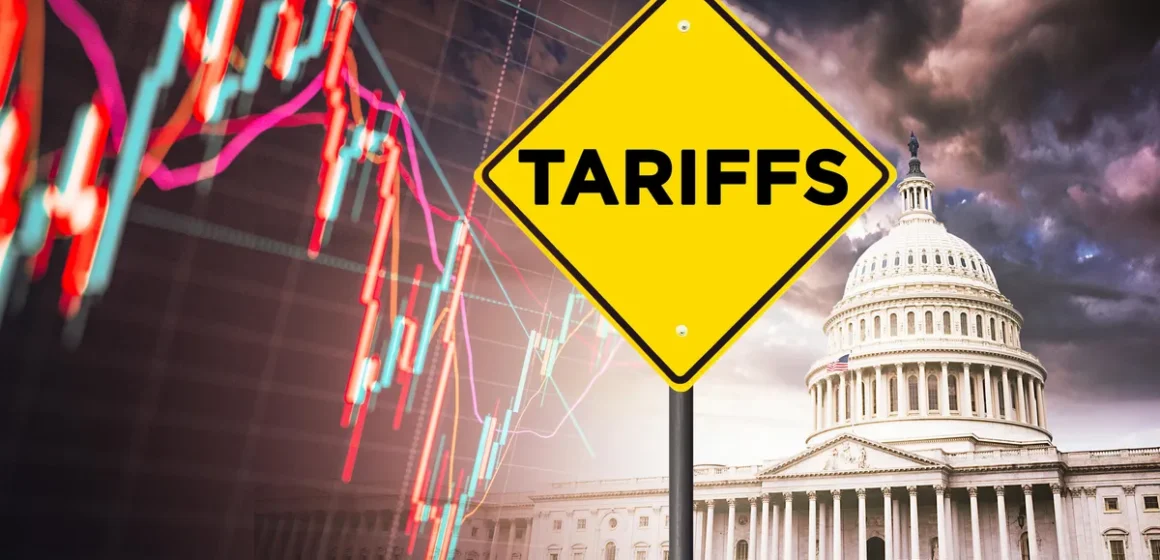Tariffs are taxes placed on goods from other countries. The United States has introduced new tariffs on UK products. These include a 10% tax on most items and a 25% tax on cars and car parts. The goal is to protect American businesses by making imported goods more expensive. However, these changes create big challenges for the UK. Businesses may lose profits, workers could face job cuts, and customers might see price increases. Energy bills and investments might also be affected.
What Are US Tariffs, and Why Do They Matter?
US tariffs are taxes on goods entering the country. President Donald Trump announced a 10% tariff on most UK imports. Some products, like cars, now face a 25% tax. These measures aim to protect American industries by making foreign products more expensive. However, they add extra costs for UK businesses.
How Will Prices in the UK Change?
Tariffs can make things more expensive or even cheaper. Here’s how:
- UK companies importing materials from the US may pay more. If they pass the costs to shoppers, prices could rise.
- The value of the British pound could become weaker. This would make imported goods from other countries more expensive.
- Energy prices might increase. The US supplies a lot of gas to the UK. If fewer gas shipments arrive, prices could go up.
On the other hand, some things might become cheaper. For example, countries that can’t sell to the US due to high tariffs might export to the UK instead. This could lead to lower prices in the shops for some goods.

Will Jobs Be Affected?
The tariffs create challenges for many industries. The UK exported around £60 billion in goods to the US last year. If Americans stop buying these products, companies could lose money, which would put jobs at risk.
One of the hardest-hit industries may be car manufacturing. The UK exports many cars and car parts to the US. With a 25% tariff, these products become very expensive. Companies like Jaguar Land Rover and Mini could lose business. This could lead to job losses. Factories like the Mini plant at Cowley are most at risk.
The new tariffs add uncertainty to the UK economy. To help, the Bank of England may lower interest rates. Lower rates can reduce borrowing costs. For example, monthly payments may become cheaper if you have a mortgage. However, lower rates also mean savings accounts will earn less interest. This could make saving money harder.
How Will Energy Bills Be Affected?
The UK gets 17% of its gas from the US. If the US decides to keep more gas, the UK might get less. This could make gas more expensive. Higher energy prices will directly affect household bills. If the UK imposes retaliatory tariffs on US energy, the situation could worsen.
Stock markets react quickly to global trade changes. Right now, markets are shaky. Pensions and investments linked to these markets might lose value. If you have a retirement savings plan, it might be affected. Experts suggest staying calm and focused on long-term goals. Markets often recover over time.
Could There Be Any Positives?
The tariffs may also create a few opportunities:
- UK products could become cheaper for US buyers than goods from other countries facing higher tariffs. This might increase sales for some UK businesses.
- Some countries that export to the US could turn to the UK as an alternative. This could lead to increased goods entering the British market, potentially lowering prices.
- Foreign companies might set up factories in the UK. By producing goods here, they can avoid US tariffs. This could mean more jobs for workers.

What Is the UK Doing About This?
The UK government is trying to negotiate with the US. They want to reduce some of these tariffs. The government is also considering its response. Retaliatory tariffs could raise taxes on US goods coming into the UK. However, this also makes things more expensive for British consumers.
Prime Minister Keir Starmer has promised to protect the UK’s national interests. This means finding solutions that support workers and businesses while keeping prices stable.
Key Takeaways
The US tariffs will have some big effects on the UK economy. Prices could change, jobs might be at risk, and energy bills could rise. People with pensions or investments may also feel the impact.
At the same time, the UK might benefit from trade changes, such as new investments or cheaper imports. The government is working hard to manage these challenges and protect the economy. While the situation is uncertain, the UK has the resilience to adjust and thrive. It’s important to stay informed and plan for changes ahead.
Thank you for reading, click the link to read more of our Most Recent Articles
Inside Success presents to you our digital platform, created to inform, inspire and empower 16-35s. Through our articles, we aim to bring bold ideas, fresh voices and real conservations to life. From mental health advice, to career information, and fashion tips to social issue debates, Inside Success is proud to have created a platform that has something to cater to everyone.




Leave a Reply
You must be logged in to post a comment.